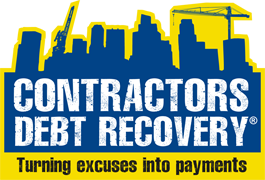To Get Paid Sometimes You Have to Cross The Line
Late last year I had a client that was owed nearly a million dollars in variations. The client had told him that all variation claims were NOT to be added into the monthly invoices and ‘they would be sorted out at the end’. Needless to say, he was nearing the end of a large contract and had a seven figure amount owing which had not yet even been claimed.
He was now terrified of coming forward and insisting on payment for the additional work. He was scared to cross the line from passive to proactive.
It took a lot of convincing but he eventually agreed to consolidate a large claim the next month which contained all contract work done PLUS all the additional work. This was well over a million dollars. His company had never made this kind of claim to the client before, and they had done several large projects together. He met with the client and put the claim on the table and said ‘This is what we will be serving on you tomorrow’.
Did the client terminate the contract? Did the client explode in a rage? Did the client unleash an army of lawyers to argue the point? Did planet earth suddenly vanish leaving my client floating in space? The answer is of course no. Guess what?
He got paid the next day.
Not all he was claiming mind you, but a large part of it. And the reason he did not get all he was claiming was because he had not claimed for the work when it had been one. If the matter had gone to adjudication it is almost certain that the full value of works would have been found payable.
There is the old saying about FEAR: It is only False Expectations Appearing Real. That is, the contractor assumed that making the full claim would have a host of disastrous consequences. But this is rarely the case. Most of the time the proactive making of a claim will take you over that line from passive to proactive. If the money is fairly owing, the non payer will have a hard time making its case and so will be open to a payment resolution.
There are four steps that you need to follow to address this situation.
- Get the Documents together
Carefully assemble all contract works invoices, site instructions, variation orders, key emails. Also do a full project reconciliation so that a final figure matches up with your documentation and that you have a clear explanation of the amount owed. Remember to allow for credits issued, retentions held, and payments made.
- Ask for Payment
In whatever manner is stipulated in your contract, simply serve this claim on the client via at least two methods: express post, email, fax, courier and so on. If applicable, make the claim under the Security of Payment Act as it applies in your state.
There is good value in adding a cover note informing the client that you are submitting this claim because they have been in breach of payment terms, and that your business cannot carry out its contract under these cash-flow conditions. The fact that the claim has been so formally sent will put your client on notice that this time things are going to be different and that there will need to be some explanation if payment is to be withheld.
- Bring things to a head
If your client is refusing to pay on unsubstantiated grounds then you must make it clear that you are prepared to have the matter decided by an outside body. This part of the process can take many forms. It might be expressed in an email, or discussed at a meeting, or phone call. But all these instances must share the common ‘change in tone’ that indicates to your client that things are different now. That your patience is at an end, and that you are now insisting on payment or there will be consequences.
This is the point at which settlement deals are done, and payments are made. But there is one important aspect here. You have to be prepared to follow through.
- “Take it to law”
There is a great line in the movie True Grit in which a young girl is bargaining with a business man. When he rejects her offer she threatens to ‘Take it to law’. He backed down. What is meant by ‘Take it to Law’ is that the matter will be decided by an external person or body that is empowered to decide the matter. In construction is commonly a court, adjudicator, or tribunal. Whichever way you go, the fact is that your client will have to explain themselves to an external person. The issue then becomes public to a certain extent. It is no longer a quiet dispute.
It is still a rarity for non payers in the construction game to be forced to explain why they are not paying for the work. Either this will be enough to force a payment, or else the matter will be decided with some finality. But the good thing here is that both parties get their say and that the subsequent decision has authority and validity because of that. In our experience, more often than not payment will be made after such a decision.
So do not spend too much time in quiet desperation, wondering if you’ll get paid. Cross the line and go after your money.
